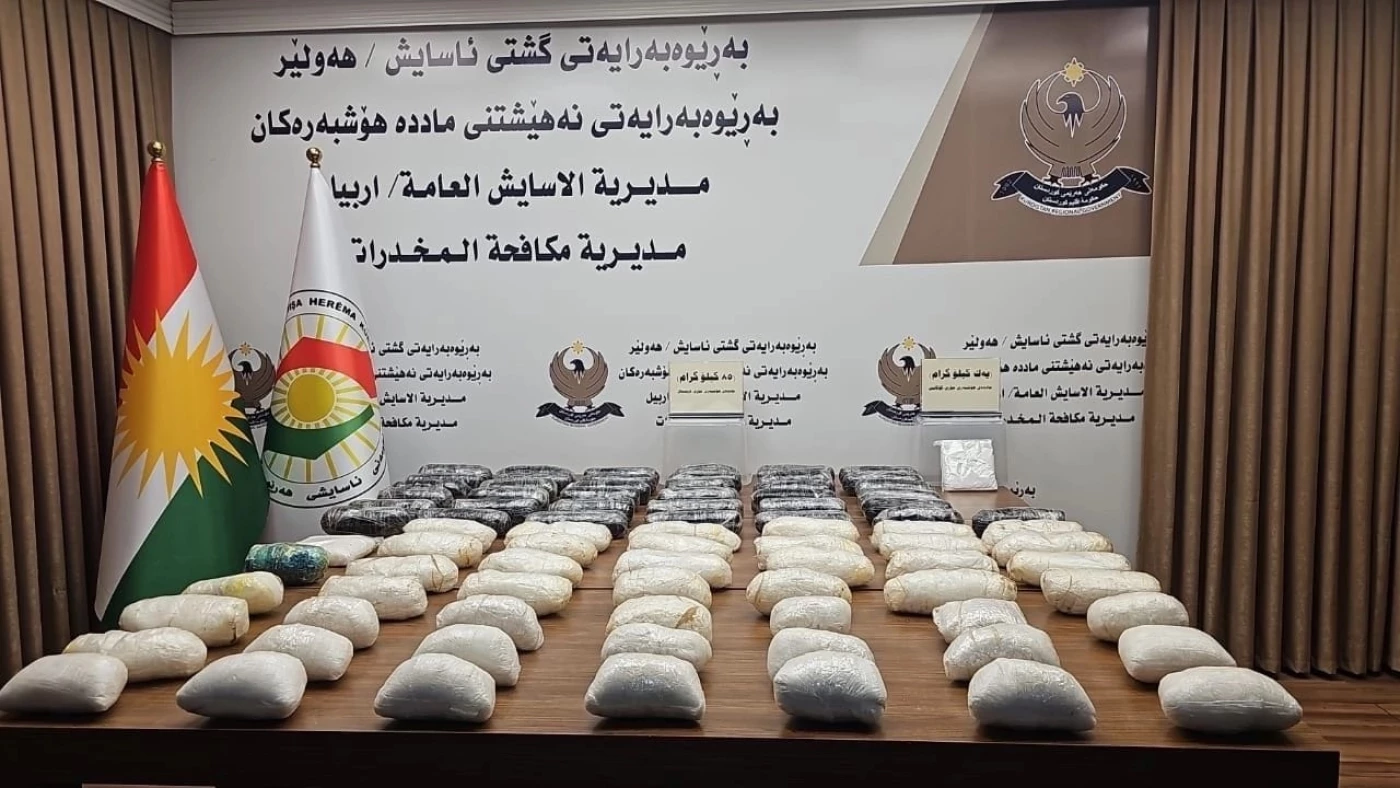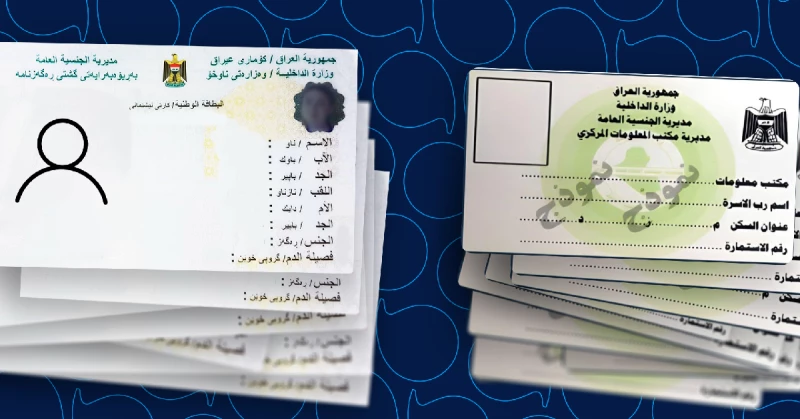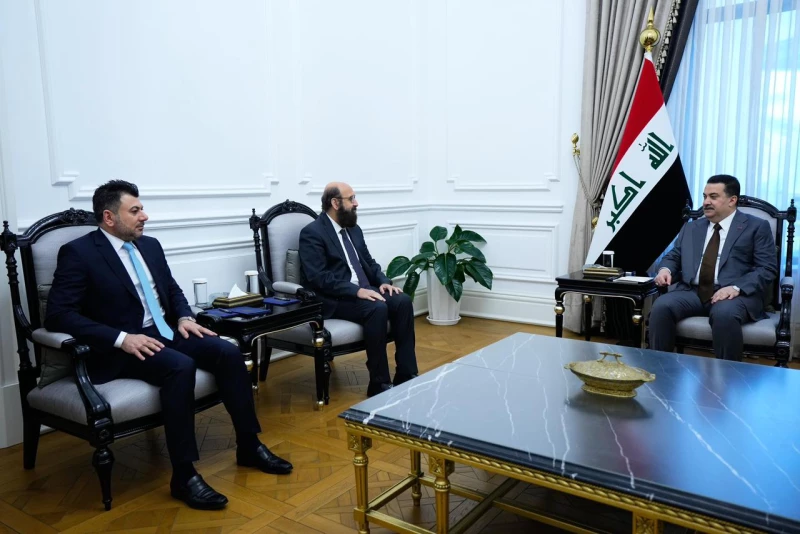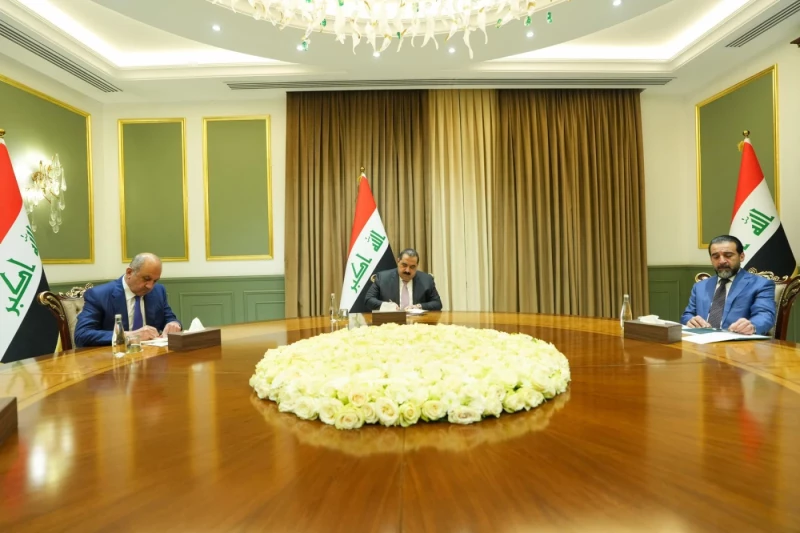ERBIL, Kurdistan Region of Iraq - Over 1,000 people have been arrested on drug-related charges in the Kurdistan Region in the first seven months of 2024, an official confirmed to The New Region on Monday.
“Security forces have arrested 1,003 suspects in seven months. Of this number, 529 of them were traffickers and the other 474 were users,” Arkan Bibani, an official from the Kurdistan Region’s anti-narcotics department said.
Bibani said they “confiscated 194 kilograms of narcotic pills” when they made the arrests.
During the seven-month campaign, the anti-narcotics department confiscated over 170 kilograms of crystal meth, 653 grams of heroin, 177 gram of hash, 21 kilogram of opium, and 398 gram of marijuana, the official detailed.
The data from the anti-narcotics department comes just one week after security forces in Erbil announced the arrest of three “dangerous” drug traffickers, the seizure of 85 kilograms of crystal meth, as well as a depot in one of Erbil's outlying farms.
According to data obtained by The New Region, as of June, there were 1,381 people charged with drug use or trade in Erbil’s prisons.
Drug trafficking has become a major challenge for Iraq and the Kurdistan Region, as the country shifts focus from combating terrorism to addressing the escalating drug crisis.
A delegation from the American Sterling Charity Foundation met with Erbil’s governor Omed Khoshnaw in June to discuss the opening of a rehabilitation center in the province.
The initiative came while another rehabilitation center is at the last stages of completion in the province’s Shaqlawa district, and two more centers are also being established in Sulaimani and Duhok provinces
Iraq's Ministry of Interior in early June announced that they had seized over 1.5 tons of drugs in the first half of 2024, with a total of five tons seized over two years.
Despite imposing severe penalties, Iraq continues to struggle with an escalating drug problem that has intensified since the US invasion in 2003.
The country has transitioned from a transit route for drugs from Iran and Pakistan to a drug manufacturing hub, as noted in a 2022 report by the Washington Institute.
The country faces substantial challenges, such as insufficient rehabilitation centers and overcrowded prisons, leading to high relapse rates among former inmates.
Iraq’s stringent narcotics laws, imposing death or life sentences for drug-related offenses, underscore the severity of the crisis but are yet to fully curb the increasing drug use and trafficking.



 Facebook
Facebook
 LinkedIn
LinkedIn
 Telegram
Telegram
 X
X


